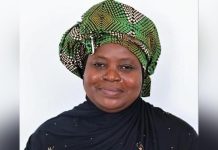Africa-Press – Gambia. During the national dissemination workshop of The Gambia Human Capital Review and The Gambia Economic Update, the World Bank (WB) Human Capital Review reported that The Gambia is not building enough human capital.
The dissemination event was held wednesday at the Sir Dawda Kairaba Jawara Conference Centre.
The Human Capital Review (HCR) dissemination event is part of a series of national events designed to raise awareness on issues surrounding The Gambia’s human capital and to promote dialogue among national policymakers and stakeholders in The Gambia.
The report on early childhood and childhood reveals that 64% of children in the poorest households were anaemic in 2019 compared to 30% in the wealthiest households. It further noted that 90% of 10-year-olds in The Gambia are likely unable to read and understand a short text.
On youth, the review highlighted that “until they get married, girls are more likely to attend school than boys; then the gender gap reverses, highlighting the negative impact of early marriage on human capital formation.”
The review on adulthood indicates that Female Genital Mutilation (FGM) rates remain high with 73% of women aged 15-49 having undergone FGM. It continued that only 4% of Gambian students who sat the West African Senior School Certificate Examination (WASSCE) met the University of the Gambia’s entrance requirements.
The review report further stated The Gambia is not utilising its human capital, indicating that 37% of youth between the ages of 14-24 are not in education, employment or training (NEET).
“Only half of the working-age population participates in the labour force. Large proportions are unpaid but contributing family workers or subsistence farmers. Women underutilise their human capital: 55.9% are out of the labour force and even when employed, they are less likely to be in wage-employment.”
Revealing that The Gambia is not protecting its human capital, the report highlighted that most employed Gambians are in the informal sector without access to social protection options. It notes that social insurance is largely nonexistent even for formal workers, adding that Gambians are not protected against the risk from climate and other shocks.
For More News And Analysis About Gambia Follow Africa-Press






